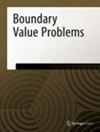Utilizing fractional derivatives and sensitivity analysis in a random framework: a model-based approach to the investigation of random dynamics of malware spread
IF 1.7
4区 数学
Q1 Mathematics
引用次数: 0
Abstract
In this study, an ordinary-deterministic equation system modeling the spread dynamics of malware under mutation is analyzed with fractional derivatives and random variables. The original model is transformed into a system of fractional-random differential equations (FRDEs) using Caputo fractional derivatives. Normally distributed random variables are defined for the parameters of the original system that are related to the mutations and infections of the nodes in the network. The resulting system of FRDEs is simulated using the predictor-corrector method based fde12 algorithm and the forward fractional Euler method (ffEm) for various values of the model components such as the standard deviations, orders of derivation, and repetition numbers. Additionally, the sensitivity analysis of the original model is investigated in relation to the random nature of the components and the basic reproduction number ( $R_{0}$ ) to underline the correspondence of random dynamics and sensitivity indices. Both the normalized forward sensitivity indices (NFSI) and the standard deviation of $R_{0}$ with random components give matching results for analyzing the changes in the spread rate. Theoretical results are backed by the simulation outputs on the numerical characteristics of the fractional-random model for the expected number of infections and mutations, expected timing of the removal of mutations from the network, and measurement of the variability in the results such as the coefficients of variation. Comparison of the results from the original model and the fractional-random model shows that the fractional-random analysis provides a more generalized perspective while facilitating a versatile investigation with ease and can be used on different models as well.在随机框架中利用分数导数和敏感性分析:基于模型的恶意软件传播随机动态研究方法
本研究利用分数导数和随机变量分析了模拟变异情况下恶意软件传播动态的常确定性方程系统。利用卡普托分数导数将原始模型转化为分数随机微分方程(FRDE)系统。为原始系统的参数定义了正态分布随机变量,这些参数与网络中节点的突变和感染有关。使用基于预测器-校正器方法的 fde12 算法和前向分数欧拉法 (ffEm) 对所得到的 FRDEs 系统进行模拟,并对模型各组成部分(如标准偏差、推导阶数和重复次数)的不同值进行分析。此外,研究了原始模型的灵敏度分析与各组成部分的随机性和基本重复数($R_{0}$)的关系,以强调随机动力学和灵敏度指数的对应关系。归一化前向敏感度指数(NFSI)和随机成分的标准偏差(R_{0}$)都给出了分析传播率变化的匹配结果。理论结果得到了关于分数随机模型数值特征的模拟输出的支持,这些数值特征包括预期的感染和突变数量、从网络中清除突变的预期时间,以及变异系数等结果变异性的测量。对原始模型和分数随机模型的结果进行比较后发现,分数随机分析提供了一个更广阔的视角,同时便于进行多方面的研究,也可用于不同的模型。
本文章由计算机程序翻译,如有差异,请以英文原文为准。
求助全文
约1分钟内获得全文
求助全文
来源期刊

Boundary Value Problems
MATHEMATICS, APPLIED-MATHEMATICS
CiteScore
3.00
自引率
5.90%
发文量
83
审稿时长
4 months
期刊介绍:
The main aim of Boundary Value Problems is to provide a forum to promote, encourage, and bring together various disciplines which use the theory, methods, and applications of boundary value problems. Boundary Value Problems will publish very high quality research articles on boundary value problems for ordinary, functional, difference, elliptic, parabolic, and hyperbolic differential equations. Articles on singular, free, and ill-posed boundary value problems, and other areas of abstract and concrete analysis are welcome. In addition to regular research articles, Boundary Value Problems will publish review articles.
 求助内容:
求助内容: 应助结果提醒方式:
应助结果提醒方式:


